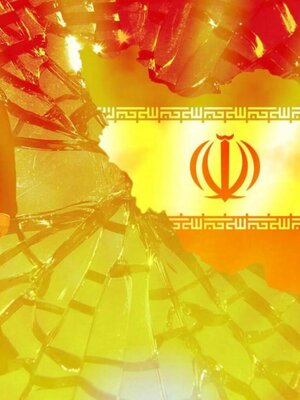
By Nicholas Grossman, Department of Political Science, University of Illinois
October 9, 2017
How pulling out might impact U.S. Interests
On October 5, 2017, President Trump announced a plan to “decertify” the Joint Comprehensive Plan of Action (JCPOA, better known as the Iran Deal). After the Obama administration completed the agreement, Congress passed a law requiring the president to certify that Iran is honoring its obligations every 90 days. If not, Congress has the option of imposing sanctions, effectively reneging on its country’s commitment.
All non-U.S. parties to the JCPOA — U.K., France, Germany, China, Russia — along with the U.N.’s International Atomic Energy Agency have said that Iran has:
- Sharply reduced its stockpiles of highly enriched uranium, leaving it with significantly less than could fuel one bomb, and scrapped much of its uranium enrichment capacity.
- Poured concrete into its one plutonium-producing reactor, cutting off the other possible path to a bomb.
- And allowed international inspectors to install monitoring devices at its nuclear sites to verify compliance.
Even the Trump administration twice certified that Iran has done what it promised.
Whether or not the deal was originally in America’s interest, it’s done. Trump can’t go back in time and reject it or do a better job negotiating it. The United States’ choice is to honor the deal and enforce it, or withdraw, effectively freeing Iran from commitments that are more restrictive than other non-nuclear weapons states under the Nuclear Non-proliferation Treaty (NPT).
Iran supports groups that are at odds with America’s Middle East partners, such as Hezbollah in Lebanon and sometimes also Hamas in Gaza, which oppose Israel; the Houthi rebellion in Yemen, which Saudi Arabia considers an enemy; and Shia militias in Iraq. Iran has also been testing advanced ballistic missiles, in violation of multiple UN Security Council resolutions. But these matters are not part of the nuclear deal.
The preamble to the JCPOA expresses hope that its full implementation will “positively contribute to regional and international peace and security.” Given the adversarial relationship between the United States and Iran since the 1979 Islamic Revolution, the Iran Deal’s trade of sanctions relief for nuclear restrictions was a significant step in the direction of peace. However, important disagreements remain, keeping the two sides from an all-encompassing “Grand Bargain.”
As critics point out, parts of the deal sunset after one or two decades. The agreement nevertheless requires Iran to remain in the NPT as a non-weapons state—forbidding it from building a bomb—and sign the Additional Protocol, which requires intrusive inspections. Though the United States accused Iran of violating the NPT by hiding increased enrichment capacity and work on nuclear weapons design from the International Atomic Energy Agency, withdrawing from the JCPOA would make it harder to verify Iranian compliance, not easier.
Once the JCPOA’s restrictions end, the Iranians could restart enrichment, acquiring all the components to build nuclear weapons, but stopping short of constructing them. That’s a problem other parties to the NPT may have to contend with in the future. But if the United States reneges on its commitments while Iran remains in compliance, it becomes a problem sooner, and the United States will be in a worse position to address it.
Iran’s economy has much to gain from international trade; hence its remarkable agreement to dismantle so much of its nuclear infrastructure. With Europe, Russia, China, India, Japan, and others joining the sanctions regime, Iran was under considerable economic pressure. However, since none of those parties believe Iran has violated the JCPOA, they do not want to re-impose sanctions.
The United States could impose unilateral sanctions, but that wouldn’t do much. America first imposed sanctions on Iran in 1979 in response to the hostage crisis at the American embassy in Tehran, but that did not significantly alter Iranian behavior. If Iran cannot trade with America, it can just trade more with other countries.
When Trump declared he will decertify the deal, the White House said the president would not yet recommend that Congress re-impose sanctions. This gives Congress an opportunity to honor commitments under the JCPOA. However, if Congress chooses to follow Trump’s lead and sanction Iran, it will create a test of U.S. influence. To pressure other countries to join the sanctions regime, the United States may impose penalties on companies, especially in Europe, that continue to do business with Iran.
China and Russia are unlikely to buckle under American pressure. But European countries will face a difficult choice. Though they do not believe Tehran has violated the JCPOA, they could join the United States and re-impose sanctions, angering companies that have begun conducting business in Iran. Or they could refuse, straining the Western alliance and potentially facing sanctions from the EU’s largest trading partner.
Either way, the outcome could prove to be a watershed moment in the history of U.S. global influence.